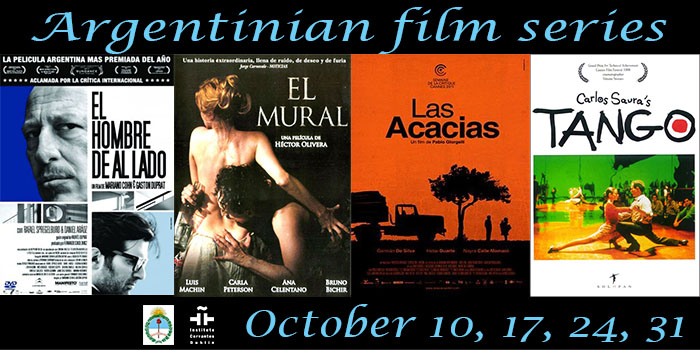Blog del Instituto Cervantes de Dublín
Torre Martello
[Video] Elia Barceló en el Festival Isla de Literatura
Elia Barceló participó en la mesa redonda «Literatura fantástica y poesía: de Cortázar a Beckett, pasando por Borges», con la que abrimos el festival ISLA de literatura el pasado mes de noviembre. En este video es entrevistada por Carmen Sanjulián. Edición de Cris Méndez.
Elia Barceló (Alicante, España, 1957) ha publicado novelas policíacas, históricas, de ciencia ficción y género fantástico para adultos, así como novelas para jóvenes y ensayos. Ha recibido el Premio Gabriel 2007, galardón reservado para las más importantes personalidades del género fantástico en España.
Elia Barceló ha sido traducida al francés, italiano, alemán, catalán, inglés, griego, húngaro, holandés, danés, noruego, sueco, croata, portugués, euskera, checo, ruso y esperanto.
Sus novelas traducidas al inglés hasta la fecha son: Corazón de tango (2007), traducida al inglés como Heart of Tango (2010) y The Goldsmith’s Secret (2011), traducción de El secreto del orfebre (2003).
The ISLA Literary Festival kicked off with this round table where guests Elia Barceló, Harry Clifton and Bernardo Toro discussed poetry and fantastic literature, its influences and much more with Jean-Philippe Imbert (DCU).
Elia Barceló (Alicante, Spain, 1957) has published crime, historical, science fiction and fantastic novels for adults, as well as young adult books and essays. In 2007 she received the Gabriel Award, a prize for the most important personalities in the fantastic genre in Spain.
Her work has been translated into French, Italian, German, Catalan, English, Greek, Hungarian, Dutch, Danish, Norwegian, Swedish, Croatian, Portuguese, Basque, Czech, Russian and Esperanto.
Her novels translated into English are: Corazón de tango (2007), translated into English under the name Heart of Tango (2010) and The Goldsmith’s Secret (2011), a translation of El secreto del orfebre (2003).
[Video] Harry Clifton en el Festival Isla de Literatura / Isla Literary Festival
Harry Clifton participó en la mesa redonda «Literatura fantástica y poesía: de Cortázar a Beckett, pasando por Borges», con la que abrimos el festival ISLA de literatura el pasado mes de noviembre. En este video es entrevistado por Megan Specia. Edición de Cris Méndez.
Harry Clifton (Dublín, 1952) ha vivido una parte importante de su vida fuera de Irlanda (Nigeria, Extremo Oriente, Italia…). De su estancia en Italia publicó sus memorias en prosa On the Spine of Italy.
En 2004 regresó a Irlanda. Entre sus colecciones de poemas se encuentran The Desert Route: Selected Poems 1973-1988 y Secular Eden: Paris Notebooks 1994-2004. También es autor de una colección de ficción, Berkeley’s Telephone and Other Fictions (2000). Clifton fue nombrado Ireland Chair of Poetry en 2010. Ha recibido también el premio de poesía Patrick Kavanagh y dos premios Arts Council Bursaries de literatura. Sus obras han sido traducidas a varias lenguas europeas.
The ISLA Literary Festival kicked off with this round table where guests Elia Barceló, Harry Clifton and Bernardo Toro discussed poetry and fantastic literature, its influences and much more with Jean-Philippe Imbert (DCU).
Harry Clifton (Dublin, 1952) has spent great part of his life outside of Ireland (Nigeria, Far East, Italy…). He documented the time spent in Italy in his prose memoir On the Spine of Italy.
In 2004, he returned to Ireland. His collections of poems include The Desert Route: Selected Poems 1973-1988 and Secular Eden: Paris Notebooks 1994-2004. He is also the author of a collection of fiction, Berkeley’s Telephone and Other Fictions (2000). He was appointed as the Ireland Chair of Poetry in 2010. His other honors include the Patrick Kavanagh Poetry Award and two Arts Council Bursaries in Literature. His work has been translated into several European languages.
Mesa redonda: Conflictos: ficción, humor y sociedad | Round table discussion: Conflicts: fiction, humour and society
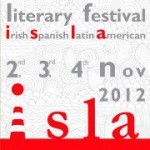 Como todos sabéis, hoy estrenamos festival, el Festival ISLA de Literatura, a las cuatro de la tarde, que será inaugurado oficialmente, a las 6:30, por el presidente de Irlanda, Sr. Michael D. Higgins.
Como todos sabéis, hoy estrenamos festival, el Festival ISLA de Literatura, a las cuatro de la tarde, que será inaugurado oficialmente, a las 6:30, por el presidente de Irlanda, Sr. Michael D. Higgins.
Mañana sábado, día 3 de noviembre, comenzaremos a las 11:30 con la mesa redonda que lleva por título «Escritores sin escrúpulos: intimidad, violencia y humor en la literatura», y continuaremos con «Cruzando fronteras: Poesía en la maleta». A las 3:30 compartiremos lecturas con varios de nuestros autores y a las 4:30 daremos paso a la mesa redonda «Conflictos: ficción, humor y sociedad», que contará con la participación de Lorenzo Silva, Bernardo Toro y Declan Bruke. Moderará la mesa Kate Quinn, de la Universidad Nacional de Irlanda en Galway.
Lorenzo Silva (Madrid, España, 1966), galardonado con el Premio Planeta hace apenas dos semanas, ha escrito, entre otras, las novelas La flaqueza del bolchevique (finalista del Premio Nadal 1997) que ha sido llevada al cine por Manuel Martín Cuenca, y Carta blanca (Premio Primavera 2004). Ha publicado también libros infantiles y juveniles, además de ensayos. Es especialmente conocido por la serie policíaca protagonizada por los investigadores Bevilacqua y Chamorro, iniciada con El lejano país de los estanques (Premio Ojo Crítico 1998), y a la que siguió, entre otras, El alquimista impaciente (Premio Nadal 2000), adaptada al cine por Patricia Ferreira. Su último libro publicado es Niños Feroces (2011). Su obra ha sido traducida a numerosos idiomas.
Bernardo Toro (Santiago, Chile) es un escritor radicado en Francia. En 1983 salió de Chile para continuar sus estudios en París, donde realizó un máster sobre la obra de Marcel Proust en la Universidad de La Sorbona. Entre 1988 y 1993, dirigió la revista de arte Lugares Extremos. Desde 1999 dirige la revista Rue Saint Ambroise, publicación dedicada al cuento contemporáneo. Actualmente es profesor y traductor literario. Es autor de dos novelas: Contretemps (A Contratiempo) (Les petits matins, 2006) y De fils à fils (De hijo a hijo) (Sotck, 2010). Su próxima novela, Qui d’autre à part nous, se publicará en el 2013.
Declan Burke ha publicado cuatro novelas hasta el día de hoy: Eightball Boogie (2003), The Big O (2007), Absolute Zero Cool (2011) y Slaughter’s Hound (2102). Absolute Zero Cool fue una de las finalistas en la categoría de novela negra para el premio Irish Book 2011 y recibió el premio Goldsboro Last Laugh a la mejor novela negra humorística en 2012. Es además el editor de These Green Streets: Irish Crime Writing in the 21st Century (2011) y co-editor, junto a John Connolly, de Books to Die For( 2012). Tiene una página web dedicada a la novela negra irlandesa llamada Crime Always Pays.
Cerraremos el día con la proyección del documental Neruda, el hombre y su obra.
We invite you to participate in a the round-table “Conflicts: fiction, humour and society” as part of the ISLA Festival. The event will be held the 3rd of November at 16:30 at Café Literario.
Historical memory, national or international conflicts and crime and daily life will be topics at this table thanks to literary works by guests Lorenzo Silva, Bernardo Toro and Declan Burke. Chaired by Kate Quinn (NUI Galway).
Lorenzo Silva (Madrid, Spain, 1966) is author of novels such as La Flaqueza del Bolchevique which was short listed for the Nadal Award in 1997, and was adapted for cinema by Manuel Martín Cuenca, andCarta Blanca which won the Primavera Award in 2004. He has also published books for children and young adults, as well as essays. He is especially known for the crime series starring detectives Bevilacqua and Chamorro, the series started with El lejano país de los estanques winner of the Ojo Crítico Award in 1998, and was followed by El Alquimista Impaciente winner of the Nadal Award in 2000, the later being adapted to cinema by Patricia Ferreira. His latest book Niños Feroces was published in 2011. His books have been translated into numerous languages such as Russian, French, German, Italian and Greek.
Bernardo Toro (Santiago, Chile) lives in France. He left Chile in 1983 to complete a masters degree at the Sorbonne University of Paris with a dissertation about Marcel Proust´s work. From 1988 to 1993 he was editor in chief of the art magazine Lugares Extremos. Since 1999, while working as lecturer and literary translator, he has been editor in chief of the magazine Rue Saint Ambroise, a publication dedicated to contemporary short stories. He is the author of two novels: Contretemps (2006) and De fils à fils (2010). His next novel, Qui d’autre à part nousis due for release in 2013.
Declan Burke has published four novels to date:Eightball Boogie (2003), The Big O (2007), Absolute Zero Cool (2011) and Slaughter’s Hound (2102).Absolute Zero Cool was shortlisted in the crime fiction section for the Irish Book Awards 2011, and received the Goldsboro Last Laugh Award for Best Humorous Crime Novel in 2012. He also is the editor of Down These Green Streets: Irish Crime Writing in the 21st Century (2011), and the co-editor, with John Connolly, of Books to Die For (2012). He hosts a website dedicated to Irish crime fiction called Crime Always Pays.
Hoy leemos con | Today we are reading with: Elia Barceló, Kevin Barry, Christopher Domínguez Michael, Keith Ridgway and María Negroni
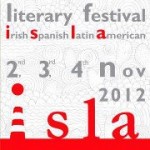 Ya solo quedan tres días para que de comienzo el esperado Festival ISLA de Literatura. Dentro de su programación, el sábado 3 de noviembre podremos disfrutar de un recital poético que dará comienzo a las tres y media de la tarde en nuestro Café Literario.
Ya solo quedan tres días para que de comienzo el esperado Festival ISLA de Literatura. Dentro de su programación, el sábado 3 de noviembre podremos disfrutar de un recital poético que dará comienzo a las tres y media de la tarde en nuestro Café Literario.
Elia Barceló, Kevin Barry, Christopher Domínguez Michael, Keith Ridway y María Negroni compartirán sus mejores textos con los asistentes al acto y unirán sus voces a este festival. La presentación, en este caso, correrá a cargo de Lorraine Kelly, de la Universidad de Galway (National University of Ireland). Pero, ¿quiénes son estos autores?, ¿no los conoces todavía?.
Elia Barceló (Alicante, España, 1957) ha publicado novelas policíacas, históricas, de ciencia ficción y género fantástico para adultos, así como novelas para jóvenes y ensayos. Ha sido traducida a diecisiete idiomas, entre ellos el inglés. Sus novelas traducidas al inglés hasta la fecha son: Corazón de tango (2007) (Heart of Tango, 2010) y El secreto del orfebre (2003) (The Goldsmith’s Secret, 2011).
Kevin Barry (Limerick). Su primer libro de relatos,There are Little Kingdoms, ganó el Premio Rooney de Literatura Irlandesa en 2007. Ha escrito sobre viajes y literatura para The Guardian, The Irish Times, The Sydney Morning Herald y muchas otras publicaciones. Su primera novela, City of Bohane (2011) ha sido galardonada en Reino Unido con el Authors’ club Best First Novel Award, que premia a la mejor primera novela del año.
Christopher Domínguez Michael (Ciudad de México, México, 1962), historiador y ensayista, es uno de los más conocidos críticos literarios hispanoamericanos. Es autor de numerosas publicaciones, siendo su última publicación Profetas del pasado. Quince voces sobre la historiografía de México (2011). Su Diccionario crítico de la literatura mexicana, 1955–2005 ha sido traducido y actualizado al inglés en 2012.
Keith Ridgway (Dublín, Irlanda, 1965). Su primera obra de ficción fue Horses (1997), a la que siguieronThe Long Falling (1998), Standard Time (2000); un libro de relatos, The Parts (2003); Animals (2006) yGoo Book (2011). Su última novela publicada esHawthorn & Child (2012). Ha recibido numerosos premios, entre ellos el Prix Femina Etranger y el Prix Premier Roman en París en 2001 por The Long Fallingbajo el título en francés Mauvais Pente, y el premio Rooney de literatura irlandesa en 2001. Las obras de Ridgway han sido traducidas a varios idiomas entre otros, el español.
María Negroni (Rosario, Argentina, 1951) es poeta, ensayista y novelista. Como poeta, ha publicado, entre otros libros: El viaje de la noche, Arte y Fuga,La Boca del Infierno y Cantar la nada. También ha publicado varios libros de ensayos y dos novelas. Su libro Islandia recibió el premio del PEN American Center en Nueva York al mejor libro de poesía en traducción del año (2001) y Galería Fantástica recibió el Premio Internacional de Ensayo de Siglo XXI (México). Su obra ha sido traducida al inglés, francés, sueco e italiano.
This event of ISLA Literary Festival will be an outstanding poetry reading in November 3rd at 3:30 at Café Literario.
Authors will read a selection of some of their best work in their original language in this poetry reading. Introduced by: Lorraine Kelly (NUI Galway).
Elia Barceló (Alicante, Spain, 1957) has published crime, historical, science fiction and fantastic novels for adults, as well as young adult books and essays. Her work has been translated into several languages, Spanish between others. Her novels translated into English are: Corazón de tango (2007), translated into English under the name Heart of Tango (2010) andThe Goldsmith’s Secret (2011), a translation of El secreto del orfebre (2003).
Kevin Barry was born in Limerick and now lives in Sligo. His first collection of short stories, There Are Little Kingdoms, won the Rooney Prize for Irish Literature in 2007. He has written about travel and literature for The Guardian, The Irish Times, The Sydney Morning Herald and many other publications. His debut novel City of Bohane (2011) recently won the Authors’ Club Best First Novel award in Britain.
Christopher Domínguez Michael (Mexico City, Mexico, 1962) is a historian and essayist, and also one of the most famous Hispanic-American literary critics. He is the author of several works, being his latest novel Profetas Del Pasado. Quince Voces Sobre La Historiografía De México was published in 2011. Since 2010 he has also worked as associate researcher at the Colegio de México. His workDiccionario Crítico de la Literatura Mexicana, 1955-2005 (Critical Dictionary of Mexican Literature, 1955–2010) has been translated into English and was updated in 2012.
María Negroni (Rosario, Argentina, 1951) is a poet, essayist and novelist. She has published numerous poetry books: Islandia, El viaje de la noche, Arte y Fuga, La Boca del infierno and Cantar la nada, to mention just a few. She has also published various essays collections and two novels. Her book Islandiareceived the 2001 PEN American Center Award for best book of poetry in translation. She was awarded the 21st Century International Essay Prize (Mexico) for her book Galería Fantástica. Her work has been translated into English, French, Swedish and Italian.
Keith Ridgway (Dublin, 1965). His first fictional prose Horses was published in 1997, followed by The Long Falling (1998), Standard Time (2000). A collection of short fiction, The Parts (2003), Animals(2006), Goo Book (2011) and Hawthorn & Child(2012). He has received numerous awards such as the Prix Femina Etranger and the Prix Premier Roman in Paris in 2001 for The Long Falling, under its French title of Mauvaise Pente, and The Rooney Prize For Irish Literature in 2001. His work has been translated into several languages and has been published in Spain, between other countries.
Mesa redonda: Cruzando fronteras: Poesía en la maleta | Round table discussion: Crossing frontiers: Poetry in the suitcase
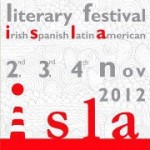 Le invitamos a una interesante discusión literaria que tendrá lugar el 3 de Noviembre a las 14:00, Festival Literario ISLA.
Le invitamos a una interesante discusión literaria que tendrá lugar el 3 de Noviembre a las 14:00, Festival Literario ISLA.
La poesía llega al festival ISLA con los autores Omar Pérez, Diego Valverde Villena, Máighréad Medbh y Lorna Shaughnessy. Cuatro formas de construir desde lo poético para enriquecer el panorama contemporáneo. Modera: Catherine O’Leary (NUI Maynooth)
Omar Pérez (La Habana, Cuba, 1964) es poeta, ensayista y traductor, además de periodista, crítico de teatro y cine, editor y locutor de radio. Su última publicación es la colección de ensayos El corazón mediterráneo (2011). Como poeta ha publicado Algo de lo sagrado (1996), ¿Oíste hablar del gato de pelea? (1999), Canciones y Letanías (2002) y Lingua Franca (2009). En inglés ha publicado Something of the Sacred (2007), traducción de Algo de lo sagrado, a cargo de Kristin Dykstra y Did you hear about the fighting cat? (2010).
Diego Valverde Villena (Lima, Perú, 1967). Poeta español y peruano, de ascendencia boliviana. En 2011 publicó su libro de poemas Un segundo de vacilación. Ha traducido obras de Conan Doyle, Kipling, John Donne, Ezra Pound, Valery Larbaud, Nuno Júdice, E.T.A. Hoffmann y Paul Celan, entre otros. Sus poemas aparecen en numerosas antologías y han sido traducidos a varios idiomas, entre ellos al irlandés. Entre sus principales obras de poesía se encuentran: El difícil ejercicio del olvido(1997), No olvides mi rostro (2001) y El espejo que lleva mi nombre escrito (2006).
Máighréad Medbh (Condado de Limerick, Irlanda) ha publicado cinco colecciones de poesía y un audiolibro. Fue pionera de la performance poética en Irlanda en los años 90. Su colección más reciente esTwelve Beds for the Dreamer (2010). Máighréad ha sido publicada en una gran variedad de antologías y ha escrito versiones de poemas gallegos para dos antologías recientes editadas por Manuela Palacios de la Universidad de Santiago de Compostela. Durante el festival, Máighréad presentará una mezcla de obras nuevas y algunas de Twelve Beds for the Dreamer y When the Air Inhales You.
Lorna Shaughnessy (Belfast, Irlanda del Norte, 1961) es poeta, traductora y profesora de Lengua Española en la Universidad Nacional de Irlanda, Galway. Ha publicado dos libros de poemas, Torching the Brown River (2009) y Witness Trees (2011) y dos traducciones de poesía contemporánea mexicana,Mother Tongue. Selected Poems by Pura López Colomé y If We Have Lost our Oldest Tales, de María Baranda (2006). Su traducción de The Disappearance of Snow de Manuel Rivas fue publicada en 2012.
You’re invited to an interesting literary discussion in November 3rd at 14:00, ISLA Literary Festival.
Poetry arrives at ISLA festival with authors Omar Pérez, Diego Valverde Villena, Máighréad Medbh and Lorna Shaughnessy. Four ways to build from poetry to enrich contemporary work. Chaired by Catherine O’Leary (NUI Maynooth).
(Havana, Cuba, 1964) is a poet, essayist and translator, as well as a journalist, theatre and film critic, editor and radio presenter. His last publication was the collection of essays El corazón mediterráneo (2011). As a poet he publishedAlgo de lo sagrado (1996), ¿Oíste hablar del gato de pelea? (1999), Canciones y Letanías (2002) andLingua Franca (2009). In English publishedSomething of the Sacred (2007), the translation ofAlgo de lo Sagrado by Kristin Dykstra, and Did You Hear About The Fighting Cat? (2010).
Diego Valverde Villena (Lima, Peru, 1967) is a Spanish and Peruvian poet of Bolivian descent. In 2011 he published his book of poems Un segundo de vacilación. He has translated, among others, works of Conan Doyle, Joseph Rudyard Kipling, John Donne, Ezra Pound, Valery Larbaud, Nuno Júdice, E.T.A. Hoffmann and Paul Celan. His poems appear in many compilations and have been translated into several languages, including Irish. His most famous works in poetry are El difícil ejercicio del olvido (1997), No olvides mi rostro (2001) and El espejo que lleva mi nombre escrito (2006).
Máighréad Medbh (Co. Limerick) has five published poetry collections and an audio CD. She was a pioneer of performance poetry in Ireland in the nineteen-nineties. Her most recent collection, Twelve Beds for the Dreamer was published in 2010. Máighréad has been published in a wide range of anthologies, and has written versions of Galician poems for two recent anthologies edited by Manuela Palacios of Universidade de Santiago de Compostela. During the festival, Máighréad will be presenting a mix of new work and some from Twelve Beds for the Dreamer and When the Air Inhales You.
Lorna Shaughnessy (Belfast, Northern Ireland, 1961) is a poet, translator and lecturer in Spanish in the National University of Ireland, Galway. She has published two collections of poems, Torching the Brown River (2009) and Witness Trees (2011) and two translations of contemporary Mexican poetry,Mother Tongue: Selected Poems by Pura López Colomé and If We Have Lost our Oldest Tales by María Baranda, (2006). Her translation of Manuel Rivas’ The Disappearance of Snow, was published in 2012.
Mesa Redonda: Escritores sin escrúpulos: Intimidad, violencia y humor en la literatura | Round table discussion: Writers without scruples: Intimacy, violence and humour in literature
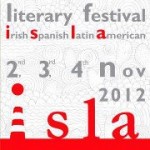 La primera actividad en el Festival Literario ISLA será una discusión literaria, que tendrá lugar el 3 de Noviembre a las 11:30 en el Café Literario.
La primera actividad en el Festival Literario ISLA será una discusión literaria, que tendrá lugar el 3 de Noviembre a las 11:30 en el Café Literario.
Temas como la identidad y la memoria, la violencia o el humor serán tratados por los invitados Ita Daly, Christopher Domínguez Michael, Rafael Gumucio y Catherine Dunne, con la moderación de Ciaran Cosgrove (Trinity College Dublin).
Ita Daly (Drumshanbo, Leitrim, Irlanda) ha publicado cinco novelas, una colección de cuentos y dos libros infantiles. Ha recibido el premio Hennessy Literary Award y el Irish Times Short Story Award. Su obra ha sido traducida al sueco, danés, japonés, italiano y alemán y sus relatos cortos han aparecido en revistas de Irlanda, Inglaterra y Estados Unidos. Uno de sus libros de relatos, The Lady With the Red Shoes, forma parte del plan de estudios de las escuelas de secundaria alemanas.
Christopher Domínguez Michael (Ciudad de México, México, 1962), historiador y ensayista, es uno de los más conocidos críticos literarios hispanoamericanos. Es autor de numerosas publicaciones, siendo su última publicación Profetas del pasado. Quince voces sobre la historiografía de México (2011). Es miembro del Sistema Nacional de Creadores de Arte desde 1993. Su Diccionario crítico de la literatura mexicana, 1955–2005 ha sido traducido y actualizado al inglés en 2012.
Rafael Gumucio (Santiago, Chile, 1970) ha trabajado como periodista en numerosos diarios nacionales chilenos, españoles y en el New York Times. En 1995 publicó el libro de relatos Invierno en la Torre y Memorias Prematuras. Ha publicado también las novelas Comedia Nupcial, Los Platos Rotos y Páginas Coloniales. Su última novela es La Deuda (2009). Actualmente es Director del Instituto de Estudios Humorísticos de la Universidad Diego Portales y co-conductor de Desde Zero en Radio Zero.
Catherine Dunne (Dublín, 1954), estudió inglés y español en Trinity College de Dublín. Su primera novela, In the Beginning, fue publicada en 1997. Le siguió A Name for Himself, finalista del premio Kerry Fiction Prize. Ha publicado otras seis novelas, The Walled Garden (2000), Another Kind of Life (2003), Something Like Love (2006), At a Time Like This(2007), Set in Stone (2009), Missing Julia (2011) y el ensayo An Unconsidered People: The Irish in Sixties London (2003). Sus novelas The Walled Garden (El jardín vallado) y A Name for Himself (Un nombre propio) han sido traducidas al español.
The first event in 3rd November of ISLA Literary Festival is a literary discussion, and it will take place at Café Literario at 11:30.
Topics such as identity and memory, violence or humour will be dealt with by guests Ita Daly, Christopher Domínguez Michael, Rafael Gumucio and Catherine Dunne, chaired by Ciaran Cosgrove (Trinity College Dublin).
Ita Daly (Drumshambo, Co. Leitrim) has published five novels, one collection of short stories and two books for children. She has won two Hennessy Literary Awards and an Irish Times Short Story Award. Her last novel, Unholy Ghosts (1997), was long listed for the International IMPAC Dublin Literary Award. Her work has been translated into Swedish, Danish, Japanese, Italian and German and her short stories have appeared in magazines in Ireland, England and America. Her short story collection The Lady With the Red Shoes (1980) is currently on the secondary school curriculum in Germany.
Christopher Domínguez Michael (Mexico City, Mexico, 1962) is a historian and essayist, and also one of the most famous Hispanic-American literary critics. He is the author of several works, being his latest novel Profetas Del Pasado. Quince Voces Sobre La Historiografía De México was published in 2011. He is a member of the Sistema Nacional de Creadores de Arte (National System for Art Creators) since 1993. His work Diccionario Crítico de la Literatura Mexicana, 1955-2005 (Critical Dictionary of Mexican Literature, 1955–2010) has been translated into English and was updated in 2012.
Rafael Gumucio (Santiago, Chile, 1970) has worked as a journalist for many Chilean and Spanish newspapers, as well as the New York Times. In 1995 he published the collection of short stories Invierno en la Torre and Memorias prematuras. He also published the novels Comedia Nupcial, Los Platos Rotos and Páginas Coloniales. His latest novel, La Deuda, was published in 2009. He now works as the director of the Institute for Humour Studies of the University Diego Portales and is co-conductor of Desde Zero at the radio station Zero. He received the Anna Seghers Award in Germany in 2002.
Catherine Dunne (Dublin, 1954). She studied English and Spanish at Trinity College, Dublin. Her first novel, In the Beginning, was published in 1997. A Name for Himself followed a year later, and was short listed for the Kerry Fiction Prize. She has published six further novels, The Walled Garden (2000),Another Kind of Life (2003), Something Like Love(2006), At a Time Like This (2007), Set in Stone(2009), Missing Julia (2011) and the non-fiction bookAn Unconsidered People: The Irish in Sixties London(2003). Her novels The Walled Garden (El jardín vallado) and A Name for Himself (Un nombre propio) have been translated into Spanish.
Festival Literario ISLA / ISLA Literary Festival
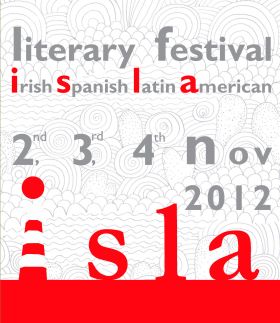 Irlanda es una isla grande y fértil. Una isla sembrada de escritores y de buena literatura. Un escritor, en algún momento de su labor creativa, también ha de convertirse en una isla, retirarse en silencio hasta el lugar en donde se encuentran las palabras, esas mismas palabras que luego descubrirá algún lector solitario, como un tesoro en una isla pirata, un tesoro en forma de libro.
Irlanda es una isla grande y fértil. Una isla sembrada de escritores y de buena literatura. Un escritor, en algún momento de su labor creativa, también ha de convertirse en una isla, retirarse en silencio hasta el lugar en donde se encuentran las palabras, esas mismas palabras que luego descubrirá algún lector solitario, como un tesoro en una isla pirata, un tesoro en forma de libro.
Un buen libro es una isla que contiene el universo.
ISLA es también el nombre que hemos querido dar a nuestro festival de literatura. Es el acrónimo de “Irish, Spanish and Latin American” Literary Festival. Es por tanto, también, una ISLA grande, fértil y multicultural en la que estamos todos unidos, irlandeses, latinoamericanos y españoles, por primera vez, en torno a la literatura.
Nunca antes se había celebrado un festival de estas características. Sin embargo, creemos que hacía ya mucho tiempo que venía siendo necesario. Hoy, gracias al entusiasmo demostrado tanto por Dublin UNESCO City of Literature, Ireland Literature Exchange, Poetry Ireland y el apoyo de las universidades Dublin City University, NUI Galway, NUI Maynooth y Trinity College Dublin, como por las embajadas de Argentina, Chile, Cuba, México y por supuesto por la Embajada de España, de la que el Instituto Cervantes forma parte, este festival es una realidad. Solo podemos tener palabras de agradecimiento para todos ellos.
Y aquí estamos todos, unidos en este proyecto. Comprometidos, comunicados, reunidos en este hermoso territorio común en el que hemos depositado tantas ilusiones.
No tiene sentido que algunas de las literaturas más fecundas del planeta sigan viviendo de espaldas entre sí. Es necesario que del intercambio de experiencias e ideas, de un mejor conocimiento entre unos y otros surjan nuevas traducciones, nuevos libros y, sobre todo, nuevos lectores.
Bienvenidos a nuestra ISLA.
Ireland is a great and fertile Island. It is an Island cultivated with writers and high quality literature. A writer during the course of his creative work must also become an island, withdrawing in silence to a place where words are kept. Those same words which some solitary reader will discover like hidden treasure on a pirate island, treasure in the form of a book.
A good book is a universe within an island.
The Spanish for ‘island’ is ‘ISLA’. It is the name we have chosen for our Literary Festival. It is the acronym for ‘Irish, Spanish and Latin American’ Literary Festival. It is also in that way a great, fertile and multicultural island where the Irish, Latin Americans and Spanish for the first time are all united and gathered around literature.
Never before has such a festival taken place. However, we believe it to be a much needed, unique event that has been a long time coming. Today, and thanks to the enthusiasm of Dublin UNESCO City of Literature, Ireland Literature Exchange, Poetry Ireland and the support of Dublin City University, Trinity College Dublin, NUI Galway, NUI Maynooth, the Embassies of Argentina, Mexico, Chile and Cuba, and by the Spanish Embassy, of which Instituto Cervantes is a part, this Festival is now a reality. We can only offer words of sincere gratitude to all of them.
We are all here, united in this project. Committed, connected and gathered together in this beautiful shared place where we have invested so many dreams.
It does not make sense that some of the most fertile literary figures on the planet should live in disregard for one another. It is imperative that from the exchange of experiences and ideas and from a better understanding between one another, new translations, new literature and, above all, new readers should emerge.
We wish you a warm welcome to our ‘island’ ISLA.
Matemagia: Matemáticas y Magia / Maths and magic en el Instituto Cervantes de Dublín
Fernando Blasco, mathematician, PhD in mathematics, and professor at the Universidad Politécnica de Madrid, visited the Instituto Cervantes in Dublin on the occasion of the “Maths Week Ireland 2012” and he made us enjoy the magic of mathematics with his “Matemagia”.
In this video, interviewed by Megan Specia in English, he shows us some of his “tricks”.
Fernando Blasco, matemático, profesor de la Universidad Politécnica de Madrid, visitó el Instituto Cervantes de Dublín con motivo de la Semana de la “Maths Week Ireland 2012” y nos hizo disfrutar de la magia de las matemáticas con su Matemagia.
En este video, entrevistado por Megan Specia en inglés, nos muestra algunos de sus “trucos”.
Concierto de guitarra clásica / Classic guitar concert: Inspiración española de Alan Grundy / Spanish Inspirations by Alan Grundy
Con motivo del Día de la Hispanidad, el Instituto Cervantes de Dublín se complace en presentar de nuevo sobre su escenario del Café Literario al afamado guitarrista clásico irlandés Alan Grundy. Te esperamos hoy día 11 de octubre a las 20:00 h en el Café Literario.
escenario del Café Literario al afamado guitarrista clásico irlandés Alan Grundy. Te esperamos hoy día 11 de octubre a las 20:00 h en el Café Literario.
Inspiración Española – un recital de guitarra a cargo del guitarrista Alan Grundy, compuesto por piezas inspiradas en el baile, la canción, la poesía, la pintura, los nombres y lugares de España. Desde danzas cortesanas de los siglos XVI y XVII de los compositores Diego Pisador, Alonso Mudarra y Gaspar Sanz (tocadas por Alan con vihuela y guitarra barroca) a piezas del siglo XIX de Albéniz y Tárrega inspiradas en nombres y lugares de España. El repertorio incluye también dos piezas originales compuestas por Alan Grundy, Día de España y The Old Guitarrist / La Guitarra.
Entradas: 15 /10 € SRC: reservas.dublin@cervantes.es
On the occasion of the near-coming Spanish National Day, Instituto Cervantes Dublin is delighted to bring again on stage renowned Irish classical guitarist Alan Grundy. The concert is today at 8.00pm at our Café Literario.
‘Spanish Inspiration’ – A Guitar Recital by guitarist Alan Grundy featuring guitar works inspired by Spanish Dance, Song, Poetry, Painting, Names and Places. From Court Dances of the 16th and 17th Centuries by Diego Pisador, Alonso Mudarra and Gaspar Sanz (played by Alan on Vihuela and Baroque Guitar), to 19th Century pieces inspired by Spanish names and places by Albeniz and Tarréga. The Recital will also feature two original works by Alan Grundy – Dia de España and The Old Guitarist / La Guitarra.
Tickets: 15 /10 € RSVP: reservas.dublin@cervantes.es
Nuevo ciclo de cine argentino en el Cervantes de Dublín / Argentinian Film series at #ICervantes #Dublin
Mañana miércoles comienza el nuevo ciclo de cine argentino en el Instituto Cervantes de Dublín, ofrecido por la Embajada de Argentina en Irlanda.
El cine argentino ha sido históricamente una de las tres filmografías más desarrolladas dentro del cine latinoamericano, junto a las producciones mexicanas y brasileñas.
Así, el cine creado en Argentina durante el siglo XX se convirtió en uno de los principales embajadores del idioma español por el mundo. La bandera de Argentina, del año 1897, se podría considerar como la primera obra cinematográfica nacional y desde su estreno hasta nuestros días han llegado a las pantallas cerca de 2500 películas argentinas con gran éxito de crítica y público, siendo La historia oficial (1985) y El secreto de sus ojos (2009) ganadoras del Oscar a la Mejor Película Extranjera.
En este ciclo podrás ver películas muy recientes como El hombre de al lado (2010), El mural (2010) o Las acacias (2011).
El ciclo será inaugurado mañana, 10 de octubre a las 18h con una recepción por cortesía de la Embajada de Argentina en Irlanda.
Come and enjoy the four films screened in this series offered by the Embassy of Argentina and Instituto Cervantes Dublin.
You will be able to see how Argentine cinema has been historically one of the three most developed productions of Latin American cinema, followed by Mexican and Brazilian production.
This way, the variety of films produced in Argentina during the 20th century bacame one of the most important ambassadors of the Spanish language all over the world. La bandera de Argentina (1897) could be considered the first national cinematographic piece and since its premiere, nearly 2500 argentine films have reached theatre screens with great acclaim from both critics and audiences.
Worth mentioning are La historia oficial (1985) and El secreto de sus ojos (2009), both awarded an Oscar for Best Foreign Language Film.
You could enjoy of recent films such as The man of next door (El hombre de al lado, 2010), El mural (The mural, 2010) or Las acacias (2011).
The Embassy of Argentina offers a wine reception on the opening of the film series, in October 10th at 6 pm.
[Video] Entrevista a Sheila Ríos en el Instituto Cervantes de Dublín
Sheila Ríos, de madre irlandesa y padre mexicano, ofreció un concierto en nuestro instituto el pasado 2 de octubre. Unos minutos antes, nos concedió una entrevista en la que habló de su carrera musical, su relación con Maná, y otros temas.
Sheila Ríos cuenta con una trayectoria artística llena de experiencia y reconocimiento. Su historia siempre ha estado envuelta en música, marcada por la herencia artística y nostálgica de Irlanda junto al romanticismo de las canciones mexicanas.
La música la ha llevado a muchas partes del mundo, con diferentes agrupaciones y como solista, destacando su participación con la banda mexicana de rock más reconocida y famosa a nivel internacional, “Maná”, con quienes ha compartido más que una profesión… una vida.
Ahora se encuentra trabajando en un nuevo disco donde interpreta sus propias composiciones. El más reciente, “Trozos de Luna”, fue producido por Fher, el líder y catante de “Maná”, junto con Fernando Quintana, quien en esta ocasión la acompaña en esta visita a sus raíces, en la bella Irlanda.
Sheila Ríos (Guadalajara, Jalisco, Mexico). With an Irish mother and a Mexican father, Sheila Ríos has an artistic trajectory full of experience and recognition. Her story has always been connected with music, marked by the artistic and nostalgic heritage and the romanticism of Mexican songs.
Her music has taken her to many parts of the world, both as solo artist and with different groups, of which “Maná” especially stands out, the most recognized and famous Mexican rock band, with whom she has shared more than a profession…a life.
Now she is working with new material where she interprets her own compositions. The most recent one, “Trozos de Luna”, was produced by Fher, the leader and singer of “Maná”, along with Fernando Quintana, who in this occasion is accompanying her during the visit to her roots in beautiful Ireland.
[Video] Cecilia Gandarias habla sobre la exposición «Geografía Postal»
En la primera mitad del siglo XX, las familias García Lorca y De los Ríos se enviaban postales casi todos los días, creando así una amplísima colección que ahora se expone en el Instituto Cervantes. Cecilia Gandarias, comisaria de la exposición, nos habla de cómo surgió la idea para esta exposición y de como se realizó la selección de las postales.
La exposición estará abierta del 20/09/2012 al 17/11/2012.
El horario de visita es: Lun.- jue.: 14-19 h. Sáb: 10-14 h. Cerrado vie., dom. y festivos
In the first half of the 20th Century two families, García Lorca and De los Ríos, sent each other postcards almost daily. A selection of this huge collection of postcards is now on display at the Instituto Cervantes in Dublin. Cecilia Gandarias, exhibition curator, explains us in this video how they came to the idea of organizing this exhibition and how Martin Parr, photographer and specialist in postcards, made the selection.
This display will bring us closer to the most intimate side of the poet´s life.
The exhibition is open fro the 20/09/2012 to 17/11/2012.
Opening hours: Mon-Thur: 2-7pm. Sat: 10am-2pm. Closed on Fridays, Saturdays and Bank Holidays.
[Video] PhotoIreland y «El otro lado del alma» en el Instituto Cervantes de Dublín
El pasado 31 de agosto despedimos la exposición de PhotoIreland «El otro lado del alma» que nos acompañó en el Instituto Cervantes de Dublín durante cerca de dos meses. En esta entrevista, el comisario de esta exposición, Moritz Neumüller, nos explica los orígenes y los motivos de esta iniciativa.
En «El otro lado del alma» nos encontramos con una serie de fotógrafos contemporáneos cubanos que investigan la temática religiosa y en concreto las religiones sincretistas con raíces en los cultos africanos importadas a la isla hace cientos de años por esclavos, desde muy diferentes perspectivas, mostrando una interpretación individual sobre la memoria espiritual colectiva de la nación.
Aunque la fotografía y el videoarte cubano actual se mueven en la esfera de los movimientos internacionales, mucho de los artistas cubanos siguen mostrando en sus fotografías y en sus vídeos que la tradición cubana sigue estando profundamente arraigada en ellos. Así, en muchas de las obras que se producen actualmente podemos apreciar la influencia de una profunda temática cubana.
Last 31st August we said goodbye to the PhotoIreland exhibition “The other side of the soul”, which accompanied us in the Instituto Cervantes for about two months. In this video, Moritz Neumüller, curator of this exhibition, explained us the origins and reasons for this initiative.
This exhibition showcases various contemporary Cuban photographers who research religious themes and, specifically, syncretistic religions with roots in African cults that were imported in the island centuries ago by slaves. These photographers portray a personal interpretation of the collective spiritual memory of the nation from very different perspectives.
Although both Cuban photography and video art revolve around international movements, many Cuban artists still portray an ingrained Cuban tradition. We can therefore perceive a profound Cuban theme influence in many works produced at present.
Federico García Lorca: nuestro autor del mes de septiembre
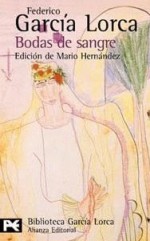 Desde el día 20 de este mes y hasta el 17 de noviembre contaremos en el Instituto con la exposición “Geografía postal. Las postales de las familias García Lorca y De los Ríos”.
Desde el día 20 de este mes y hasta el 17 de noviembre contaremos en el Instituto con la exposición “Geografía postal. Las postales de las familias García Lorca y De los Ríos”.
En la biblioteca, aprovechamos esta ocasión para recordar al que en la actualidad es el poeta español más leído de todos los tiempos. Fundamental es también su figura en el teatro español contemporáneo. En 1915 comienza a estudiar Filosofía y Letras y Derecho en la Universidad de Granada. Formó parte de El Rinconcillo, centro de reunión de los artistas granadinos donde conoce a Manuel de Falla quien ejerció una gran influencia en él, transmitiéndole su amor por el folclore y lo popular.
A partir de 1919, se instaló en Madrid, en la Residencia de Estudiantes, donde conoció a Juan Ramón Jiménez y a Machado, y trabó amistad con poetas de su generación y artistas como Buñuel o Dalí. En este ambiente, Lorca se dedicó con pasión no sólo a la poesía, sino también a la música y el dibujo, y empezó a interesarse por el teatro.
From the 20th of this month until the 17th of November, you can enjoy at the Institute the exhibition “Postal Geography. García Lorca and De los Ríos Families´s Postcards”.
At the library, we take the chance to remember the most read Spanish poet of all times. He is also an essential part of contemporary Spanish theatre. He started to study Philosophy and Literature and also took Law studies at the University of Granada. He was part of El Rinconcillo, a meeting point for the artists of Granada where he met Manuel de Falla who was a big influence, learning from him about folk and tradition .
In 1919 he moved to Madrid and lived in the Residence for Students, where he met Juan Ramón Jiménez and Machado and he became good friend of poets and artists of his generation such as Buñuel or Dalí. Lorca worked with passion in that environment in poems and also in music, drawing and he started to be interested in theatre.
Cine / Film screening: Familystrip
La última sesión del ciclo sobre memoria histórica nos llega hoy a las seis de la tarde en el Café Literario. La película se titula Familystrip y cuenta la historia de un joven pintor, Francisco Herrero, que pinta un retrato familiar: el del padre y la madre del productor, director y antiguo crítico cinematográfico Lluis Miñarro, quien con su presencia en el encuadre propone los temas de la charla.
Es un recorrido por una familia española típica, desde el franquismo hasta comienzos del siglo XXI, con una angustiosa vuelta de tuerca final. Con la elaboración del cuadro se nos revelará a una generación que desaparece: nuestros mayores. Estos dos supervivientes de la Guerra Civil y la posguerra, nos relatan sus más íntimos secretos que no son otros que la apuesta por la vida. Otra visión de nuestra memoria colectiva.
The last film of the historical memory series is today at 6pm at Café Literario. Luis Miñarro uses the story of one elderly couple to show how a generation of Spaniards were forced to struggle with war and fascism in this documentary. Miñarro paid a visit to his parents in the Catalan village where he was raised as they were preparing to celebrate their 65th wedding anniversary.
As his mother and father discussed their lives and the events that shapes their nation, Miñarro brought in a small camera crew to capture their reminiscences on film, and in Familystrip they talk at length about living through the Spanish Civil War, the rule of Franco and World War II, as well as the impact of Catholicism, and how these elements at once tested their strength and robbed them of friends and family while also teaching them to be strong and survive into the 21st Century.
